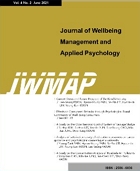- 권한신청
- E-ISSN2586-6036
- KCI
1권 1호
초록
Abstract
It has become a request of the time that multicultural population and multicultural education have become an issue and a subject of interest in the Korean society. The numbers of foreigners and multicultural families such as international marriage families and foreign worker families living in Korea are increasing, which have resulted in a geometrical increase in the number of multicultural families' children attending school. This leads an assumption that discrimination in terms of race, gender, religion, and culture can occur in school settings and the children of multicultural families are prone to become the targets of group bullying and school violence. This study first examined the current policy of multicultural education in Korea and reviewed the meanings and necessity of multicultural counseling above multicultural education. Second, this study classified and reviewed the applicability of the policy of multicultural education into multicultural education sites by groups. Third, this study selected and organized the increasing demands for multicultural counseling and assignments to effectively respond to them. Interest toward the children of multicultural families and counseling have increased with more researches on multicultural families. It will be thus necessary to accumulate more studies on multicultural counseling and ensure internal stability of multicultural-related businesses.
초록
Abstract
This study focuses on the understanding of social workers' needs for cultural competence and understanding its meaning. And furthermore, this study describes Korean cultural competence and how it is viewed in Korean reality where social workers are. Therefore, this study suggests this research idea based on previous researches data and discussed issues. Particularly considering the unique nature of Korean social welfare site involving multicultural, the role of advocacy is considered essential to Korea. Also, it is necessary and unavoidable part of the perspective of a social justice. Currently, with increasing international marriage, Korean society is rapidly moving toward a multicultural society. This means that we need to promote the ongoing multicultural understanding education to improve and enhance multicultural education system. But, the real effect of the multicultural understanding education in reality of the situation represent just other culture introduction, thus, most of the ongoing multicultural understanding education systems are insufficient to improve the multicultural competence. Korea still has a long way to go before becoming a full-fledged multicultural society. A multicultural society can bring diversity and rich life. Therefore, social workers with deep Korean multicultural competence should be increased in Korean changing multicultural society.
초록
Abstract
Modern society has become an aging society, and the National Statistics Office(NSO) expects that Korea will be also an aging society by 2019, that is, people over the age of 65 will account for 14 percent from the total population. In addition, the increase of labor flexibility is also one of the dramatic features in modern society. However, this social shift have unpredictable results, that is, the advent and increase of grandparent and grandchildren family. Modern medical technology has given Koreans longer expectancies, and structural and economic changes in society have brought early retirement. One of the main reasons that grandparent and grandchildren family increase is below an average of two children per family. There are various services available such as Health support center, Dream start center, Youth support center, Community child center, and Community welfare center. Besides, schools operates various programs for grandparent and grandchildren family with social workers and school counselors. But, most of all, what is necessary is a change of perspective on them. Basically, we need to develop a clear perspective on grandparent and grandchildren family as a not dismantling family type but alternative family type with creating a separate program or service














